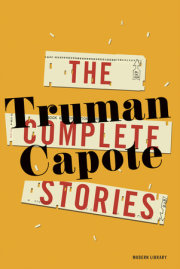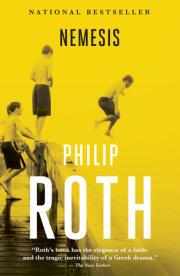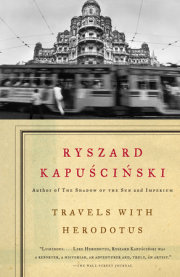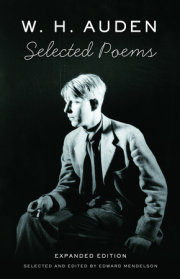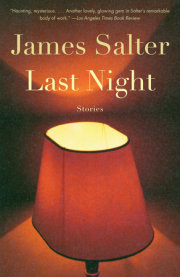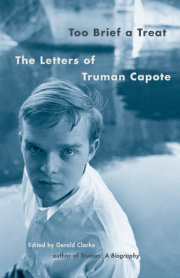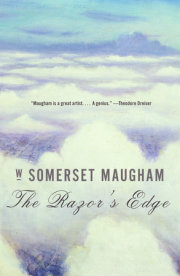PART ONE
THE TRAIN came out of the long tunnel into the snow country. The earth lay white under the night sky. The train pulled up at a signal stop.
A girl who had been sitting on the other side of the car came over and opened the window in front of Shimamura. The snowy cold poured in. Leaning far out the window, the girl called to the station master as though he were a great distance away.
The station master walked slowly over the snow, a lantern in his hand. His face was buried to the nose in a muffler, and the flaps of his cap were turned down over his ears.
It’s that cold, is it, thought Shimamura. Low, barracklike buildings that might have been railway dormitories were scattered here and there up the frozen slope of the mountain. The white of the snow fell away into the darkness some distance before it reached them.
“How are you?” the girl called out. “It’s Yoko.”
“Yoko, is it. On your way back? It’s gotten cold again.”
“I understand my brother has come to work here. Thank you for all you’ve done.”
“It will be lonely, though. This is no place for a young boy.”
“He’s really no more than a child. You’ll teach him what he needs to know, won’t you.”
“Oh, but he’s doing very well. We’ll be busier from now on, with the snow and all. Last year we had so much that the trains were always being stopped by avalanches, and the whole town was kept busy cooking for them.”
“But look at the warm clothes, would you. My brother said in his letter that he wasn’t even wearing a sweater yet.”
“I’m not warm unless I have on four layers, myself. The young ones start drinking when it gets cold, and the first thing you know they’re over there in bed with colds.” He waved his lantern toward the dormitories.
“Does my brother drink?”
“Not that I know of.”
“You’re on your way home now, are you?”
“I had a little accident. I’ve been going to the doctor.”
“You must be more careful.”
The station master, who had an overcoat on over his kimono, turned as if to cut the freezing conversation short. “Take care of yourself,” he called over his shoulder.
“Is my brother here now?” Yoko looked out over the snow-covered platform. “See that he behaves himself.” It was such a beautiful voice that it struck one as sad. In all its high resonance it seemed to come echoing back across the snowy night.
The girl was still leaning out the window when the train pulled away from the station. “Tell my brother to come home when he has a holiday,” she called out to the station master, who was walking along the tracks.
“I’ll tell him,” the man called back.
Yoko closed the window and pressed her hands to her red cheeks.
Three snowplows were waiting for the heavy snows here on the Border Range. There was an electric avalanche-warning system at the north and south entrances to the tunnel. Five thousand workers were ready to clear away the snow, and two thousand young men from the volunteer fire-departments could be mobilized if they were needed.
Yoko’s brother would be working at this signal stop, so soon to be buried under the snow—somehow that fact made the girl more interesting to Shimamura.
“The girl”—something in her manner suggested the unmarried girl. Shimamura of course had no way of being sure what her relationship was to the man with her. They acted rather like a married couple. The man was clearly ill, however, and illness shortens the distance between a man and a woman. The more earnest the ministrations, the more the two come to seem like husband and wife. A girl taking care of a man far older than she, for all the world like a young mother, can from a distance be taken for his wife.
But Shimamura in his mind had cut the girl off from the man with her and decided from her general appearance and manner that she was unmarried. And then, because he had been looking at her from a strange angle for so long, emotions peculiarly his own had perhaps colored his judgment.
It had been three hours earlier. In his boredom, Shimamura stared at his left hand as the forefinger bent and unbent. Only this hand seemed to have a vital and immediate memory of the woman he was going to see. The more he tried to call up a clear picture of her, the more his memory failed him, the farther she faded away, leaving him nothing to catch and hold. In the midst of this uncertainty only the one hand, and in particular the forefinger, even now seemed damp from her touch, seemed to be pulling him back to her from afar. Taken with the strangeness of it, he brought the hand to his face, then quickly drew a line across the misted-over window. A woman’s eye floated up before him. He almost called out in his astonishment. But he had been dreaming, and when he came to himself he saw that it was only the reflection in the window of the girl opposite. Outside it was growing dark, and the lights had been turned on in the train, transforming the window into a mirror. The mirror had been clouded over with steam until he drew that line across it.
The one eye by itself was strangely beautiful, but, feigning a traveler’s weariness and putting his face to the window as if to look at the scenery outside, he cleared the steam from the rest of the glass.
The girl leaned attentively forward, looking down at the man before her. Shimamura could see from the way her strength was gathered in her shoulders that the suggestion of fierceness in her eyes was but a sign of an intentness that did not permit her to blink. The man lay with his head pillowed at the window and his legs bent so that his feet were on the seat facing, beside the girl. It was a third-class coach. The pair were not directly opposite Shimamura but rather one seat forward, and the man’s head showed in the window-mirror only as far as the ear.
Since the girl was thus diagonally opposite him, Shimamura could as well have looked directly at her. When the two of them came on the train, however, something coolly piercing about her beauty had startled Shimamura, and as he hastily lowered his eyes he had seen the man’s ashen fingers clutching at the girl’s. Somehow it seemed wrong to look their way again.
The man’s face in the mirror suggested the feeling of security and repose it gave him to be able to rest his eyes on the girl’s breast. His very weakness lent a certain soft balance and harmony to the two figures. One end of his scarf served as a pillow, and the other end, pulled up tight over his mouth like a mask, rested on his cheek. Now and then it fell loose or slipped down over his nose, and almost before he had time to signal his annoyance the girl gently rearranged it. The process was repeated over and over, automatically, so often that Shimamura, watching them, almost found himself growing impatient. Occasionally the bottom of the overcoat in which the man’s feet were wrapped would slip open and fall to the floor, and the girl would quickly pull it back together. It was all completely natural, as if the two of them, quite insensitive to space, meant to go on forever, farther and farther into the distance. For Shimamura there was none of the pain that the sight of something truly sad can bring. Rather it was as if he were watching a tableau in a dream—and that was no doubt the working of his strange mirror.
In the depths of the mirror the evening landscape moved by, the mirror and the reflected figures like motion pictures superimposed one on the other. The figures and the background were unrelated, and yet the figures, transparent and intangible, and the background, dim in the gathering darkness, melted together into a sort of symbolic world not of this world. Particularly when a light out in the mountains shone in the center of the girl’s face, Shimamura felt his chest rise at the inexpressible beauty of it.
The mountain sky still carried traces of evening red. Individual shapes were clear far into the distance, but the monotonous mountain landscape, undistinguished for mile after mile, seemed all the more undistinguished for having lost its last traces of color. There was nothing in it to catch the eye, and it seemed to flow along in a wide, unformed emotion. That was of course because the girl’s face was floating over it. Cut off by the face, the evening landscape moved steadily by around its outlines. The face too seemed transparent—but was it really transparent? Shimamura had the illusion that the evening landscape was actually passing over the face, and the flow did not stop to let him be sure it was not.
The light inside the train was not particularly strong, and the reflection was not as clear as it would have been in a mirror. Since there was no glare, Shimamura came to forget that it was a mirror he was looking at. The girl’s face seemed to be out in the flow of the evening mountains.
It was then that a light shone in the face. The reflection in the mirror was not strong enough to blot out the light outside, nor was the light strong enough to dim the reflection. The light moved across the face, though not to light it up. It was a distant, cold light. As it sent its small ray through the pupil of the girl’s eye, as the eye and the light were superimposed one on the other, the eye became a weirdly beautiful bit of phosphorescence on the sea of evening mountains.
There was no way for Yoko to know that she was being stared at. Her attention was concentrated on the sick man, and even had she looked toward Shimamura, she would probably not have seen her reflection, and she would have paid no attention to the man looking out the window.
It did not occur to Shimamura that it was improper to stare at the girl so long and stealthily. That too was no doubt because he was taken by the unreal, otherworldly power of his mirror in the evening landscape.
When, therefore, the girl called out to the station master, her manner again suggesting overearnestness, Shimamura perhaps saw her first of all as rather like a character out of an old, romantic tale.
The window was dark by the time they came to the signal stop. The charm of the mirror faded with the fading landscape. Yoko’s face was still there, but for all the warmth of her ministrations, Shimamura had found in her a transparent coldness. He did not clear the window as it clouded over again.
He was startled, then, when a half-hour later Yoko and the man got off the train at the same station as he. He looked around as though he were about to be drawn into something, but the cold air on the platform made him suddenly ashamed of his rudeness on the train. He crossed the tracks in front of the locomotive without looking back again.
The man, clinging to Yoko’s shoulder, was about to climb down to the tracks from the platform opposite when from this side a station attendant raised a hand to stop them.
A long freight train came out of the darkness to block them from sight.
Copyright © 1996 by Yasunari Kawabata. All rights reserved. No part of this excerpt may be reproduced or reprinted without permission in writing from the publisher.




















































